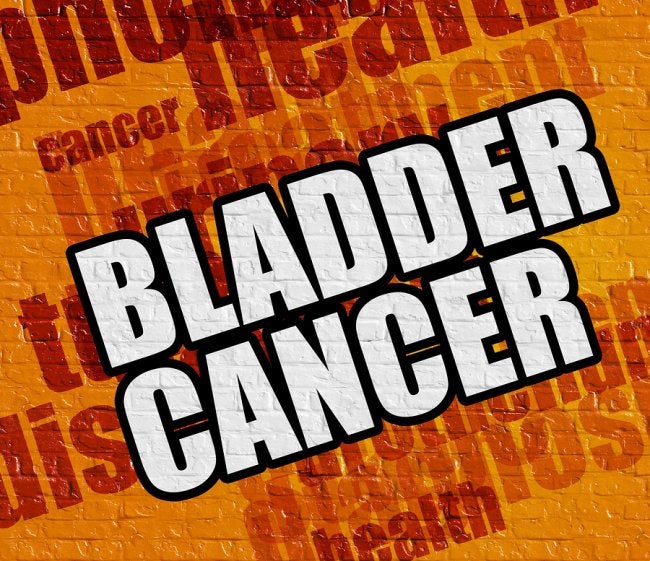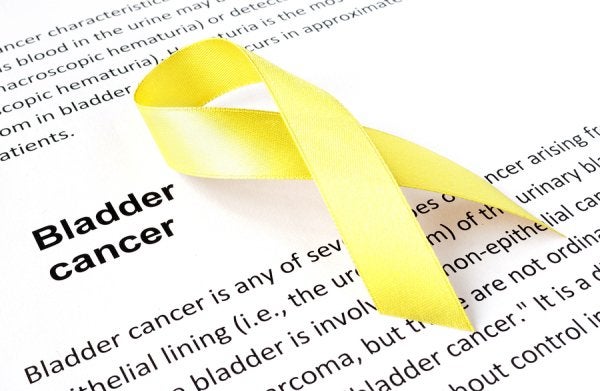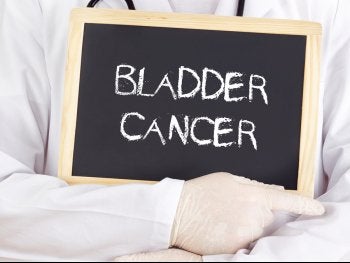-
Diagnosing Bladder Cancer
In most cases, bladder cancer begins in the lining of the bladder. As it progresses, it can penetrate deeper and potentially spread to other parts of the body. As with other types of cancer, it’s preferable if a urologist diagnoses bladder cancer when it’s in its early stages. When you watch this featured video, you’ll hear from Dr. David Morris—a board-certified urologist at Urology Associates, P.C.
Dr. Morris explains that many bladder cancer patients come to Urology Associates, P.C. after noticing blood in the urine. To diagnose the problem, you will likely have a cystoscopy, which is an invasive exam that may include a biopsy.
At Urology Associates, P.C., you’ll receive exceptional, compassionate bladder cancer care in Tennessee. You can request a referral to a urologist by calling (888) 329-7700.
-
A Look at Life After Bladder Cancer

Surviving any type of cancer is cause for celebration. But if you’ve survived bladder cancer , you should know that you’re at a high risk for recurrent bladder cancer. Your cancer care team at Urology Associates, P.C., will develop a survivorship care plan that is designed to help you live life well after cancer.
Keep all appointments for follow-up exams.
Your survivorship care plan should include a schedule of follow-up exams you’ll need. Because of the high risk of recurrent cancer, it’s essential not to skip these appointments. At each follow-up visit with your urologist, you’ll likely have a physical exam. You may be asked to have some medical tests, which might include blood tests, imaging exams, and urine tests. Assuming that you still have your bladder, you can expect periodic cystoscopy exams. As time passes and you remain cancer-free, your doctor may begin scheduling follow-up visits with reduced frequency.
Report unusual symptoms you experience to your doctor.
If you experience any signs or symptoms that might indicate a recurrence of cancer or the development of new cancer, contact your doctor right away—don’t wait for your next follow-up appointment. Your urologist will let you know which signs and symptoms to watch out for, such as changes in urination and bloody urine.
Reduce your exposure to toxins.
It’s to be expected that, after surviving bladder cancer, you’d be motivated to make some lifestyle changes to improve your health. There is no foolproof way to prevent recurrent cancer or new cancers, but there are impactful ways you can safeguard your health. If you don’t smoke, don’t start and also try to avoid secondhand smoke. If you do smoke, talk to your doctor about methods of quitting. Other environmental toxins may contribute to an increased risk of cancer. If your job requires exposure to any chemicals, you can ask your doctor if this might place you at an increased risk.
For compassionate bladder cancer treatment in Tennessee, you can put your trust in the caring team at Urology Associates, P.C. Our urology specialists are committed to helping our patients live life well , during and after cancer treatment. Call us today at (888) 329-7700.
-
Bladder Cancer Explained
One of the conditions that a urologist can diagnose and treat is bladder cancer. There are three types of bladder cancer. Transitional cell cancer is the most common type. It develops in the transitional cells that comprise the innermost layer of tissue on the bladder wall. Squamous cell cancer begins in the tissue that lines the surface of the bladder and adenocarcinoma begins in the glandular or secretory cells of the bladder.
When you watch this animation, you’ll learn more about the three types of bladder cancer and you’ll discover the typical symptoms of bladder cancer. These can include bloody urine, frequent urination, and painful urination.
Cancer treatment is one of the many advanced medical services you’ll find at Urology Associates, P.C. To discuss our cancer treatments that are available in Tennessee, call (855) 901-1338.
-
How is Bladder Cancer Diagnosed and Treated?
Bladder cancer accounts for about 90% of all cancers of the urinary tract, and transitional cell carcinoma makes up about 90% of all bladder cancers. According to the American Cancer Society, about 75,000 new cases of bladder cancer have been diagnosed so far in 2015. The good news is that the long-term prognosis for people who have bladder cancer is better today than ever before. This brief article touches on bladder cancer diagnosis and treatment, and explains how to set up a bladder cancer screening with a urologist in Nashville.

Bladder Cancer Symptoms
Before a doctor can examine you for bladder cancer, you must first exhibit or recognize one of the symptoms of bladder cancer in order to seek a diagnosis. The most common symptoms of bladder cancer include blood or blood clots in the urine, chronic pain during urination, urinating small amounts frequently, and a frequent occurrence of urinary tract infections. Symptoms of more advanced cancer include pain in the lower back around the kidneys and a growth in the pelvis area near the bladder.
Diagnosing Bladder Cancer
The first thing your doctor will do is perform a physical exam and ask questions regarding your lifestyle, exposure to cancer-causing chemicals, and family history of cancer. A urologist will collect a urine sample to check for the presence of blood, infection, and other abnormal cells that indicate bladder cancer. If the urologist has any cause for concern, he or she will perform a cystoscopy to look at your bladder using a thin, lighted tube and take biopsies of abnormal areas to test for cancer cells or tumor markers. If cancer cells are detected, various tests will be performed to classify the stage and grade of the bladder cancer.
Treating Bladder Cancer
Treatment for bladder cancer depends on the stage and grade of the cancer, as well as your age, overall health, and quality of life. Treatment options for bladder cancer include surgery, chemotherapy, radiation therapy, and immunotherapy. Bladder cancer prognosis is highest for people who get treated early, so don’t hesitate to get screened if you notice any of the symptoms of bladder cancer.
You can count on the experienced urologist at Urology Associates P.C. to answer all of your questions regarding bladder cancer diagnosis and treatment . Contact us online or call us at (888) 329-7700 to schedule a bladder cancer screening in Nashville or to learn about your bladder cancer treatment options in Tennessee if you have already been diagnosed with the disease.
-
A Patient’s Guide to Bladder Cancer
Your bladder is an organ in your pelvic region that is responsible for storing urine before it is expelled from the body. Hearing that you’ve been diagnosed with cancer is never easy to cope with. However, the good news is that bladder cancer is most often detected when it is still in its early stages, which means that it is more easily treatable as compared to diagnosis in the later stages. After your diagnosis, you’ll likely be referred to a urologist to discuss your treatment options.
 Types
Types Transitional cell carcinoma comprises the bulk of all bladder cancer cases. With this type of bladder cancer, the malignant cells appear similar to the urothelial cells, which are found on the inside of the bladder. If your urologist describes the cells as non-invasive, it means that the cancer has not penetrated the deeper layers of the bladder. Invasive cancers, on the other hand, have begun to spread. Less common types of bladder cancer include squamous cell carcinoma, adenocarcinoma, small cell carcinoma, and sarcoma.
Symptoms
Urologists recommend that patients act as their own advocates for their well-being. If you notice any unusual symptoms, it’s important to make an appointment for a check-up as soon as possible. Ignoring the symptoms of bladder cancer, such as bloody urine, gives the cancer an opportunity to spread. Other symptoms include frequent or painful urination, and pain of the back or pelvis.
Treatment Options
Many factors will inform your treatment recommendations, including the type and stage of cancer , your personal preferences, and your general health. Different surgical approaches are available for both early-stage and late-stage cancer. Chemotherapy may be used before or after surgery, or without surgery. Bladder cancer patients might also receive biological therapy drugs, or immunotherapy, which stimulates the immune system to fight the disease. Less commonly, a physician might recommend radiation therapy for bladder cancer.
If you’ve been diagnosed with bladder cancer in Nashville, you can consult a specialist at Urology Associates, P.C. Our urology specialists can help you understand the disease and explore your treatment options. In the event that surgery is a viable option for you, you can take advantage of our on-site Urology Surgery Center.
Recent Posts
categories
- Uncategorized
- Bladder Cancer
- Women's Sexual Health
- MonaLisa Touch
- Urology
- Urologist
- Erectile Dysfunction
- Kidney Cancer
- Incontinence
- Prostate
- MonaLisa Touch Laser Treatment
- Kidney Stones
- Urinary Tract Infections
- Event
- Sexual Dysfunction
- Testicular Cancer
- Prostate Cancer
- Urology Surgery Center
- urinary incontinence
- vaginismus
- noncoital pain disorder
- Hypoactive Sexual Desire Disorder
- Infographic
- provenge
- Xofigo
- robotic surgery
- hormone replacement
- diabetes
- renal cell carcinoma
- pelvic pain
- hematuria
- sexual health
- chronic testicular pain
- premature ejaculation
- Men's Health Clinic
- Dr. Melvin Seard
- Interstitial Cystitis
- vasectomy
- overactive bladder
- vaginal atrophy
- nocturia
- bladder infections
- urethral strictures
- Acute Epididymitis
- low sex drive
- circumcision
- pelvic floor dysfunction
- Peyronie's Disease
- prostatitis
- female sexual dysfunction
- varicocele
- difficult urination
- low libido
- PSA levels
- male fertility
- penile prosthesis
- prostatic intraepithelial neoplasia
- male infertility
- estrogen levels
- nurse navigator
- stress urinary incontinence
- vaginal yeast infection
- elevated psa
- painful sex
- adult circumcision
- epididymitis
- OAB
- kidney infection
- penile cancer
- pelvic organ prolapse
- Vasectomy Reversal
- bone health
- cystectomies
- clinical trials
- bloody urine
- Advanced Therapeutic Center
- WISH MedSpa
- neurogenic bladder
- WISH Team
- prostate biopsies
- BPH
- fecal incontinence
- lithotripsy
- osteoporosis
- kidney cysts
